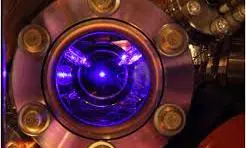
Chinese scientists develop ultra-precise clock to redefine 'second'
text_fieldsBeijing: Chinese scientists have unveiled a groundbreaking ultra-precise clock that could potentially redefine the measurement of time.
The optical clock, with a staggering precision that loses or gains only one second every 7 billion years, places China at the forefront of precise timekeeping, following the United States.
The research, led by physicist Pan Jianwei, was recently published in the peer-reviewed journal Metrologia.
Using ultracold strontium atoms and powerful laser beams, the clock achieves a stability and uncertainty level under 5 quintillionths, making it a significant leap in time measurement, reported South China Morning Post.
This optical clock places China as the second country globally, after the University of Colorado in Boulder's optical clock, to achieve such extraordinary precision. The clock developed in Boulder, led by Chinese-American physicist Jun Ye, held the previous record.
Optical clocks, renowned for their precision, utilise laser light at a frequency of approximately 500 THz, precisely matching the narrow atomic resonance of specific quantum transitions of atoms like strontium, ytterbium, and mercury. These clocks have the potential to revolutionise global navigation satellite systems and contribute to the development of highly secure communication networks based on quantum key distribution.
The Chinese research team highlighted that their ultra-precise clock opens up new opportunities for testing fundamental physics theories, detecting gravitational waves, and exploring the mysteries of dark matter.
Traditionally, the second has been defined based on microwave fountain clocks, a type of atomic clock. However, the precision of these clocks is limited by the microwave frequency standard. Optical clocks, as demonstrated by this Chinese advancement, are considered more precise and have the potential to reshape our understanding of time measurement.





